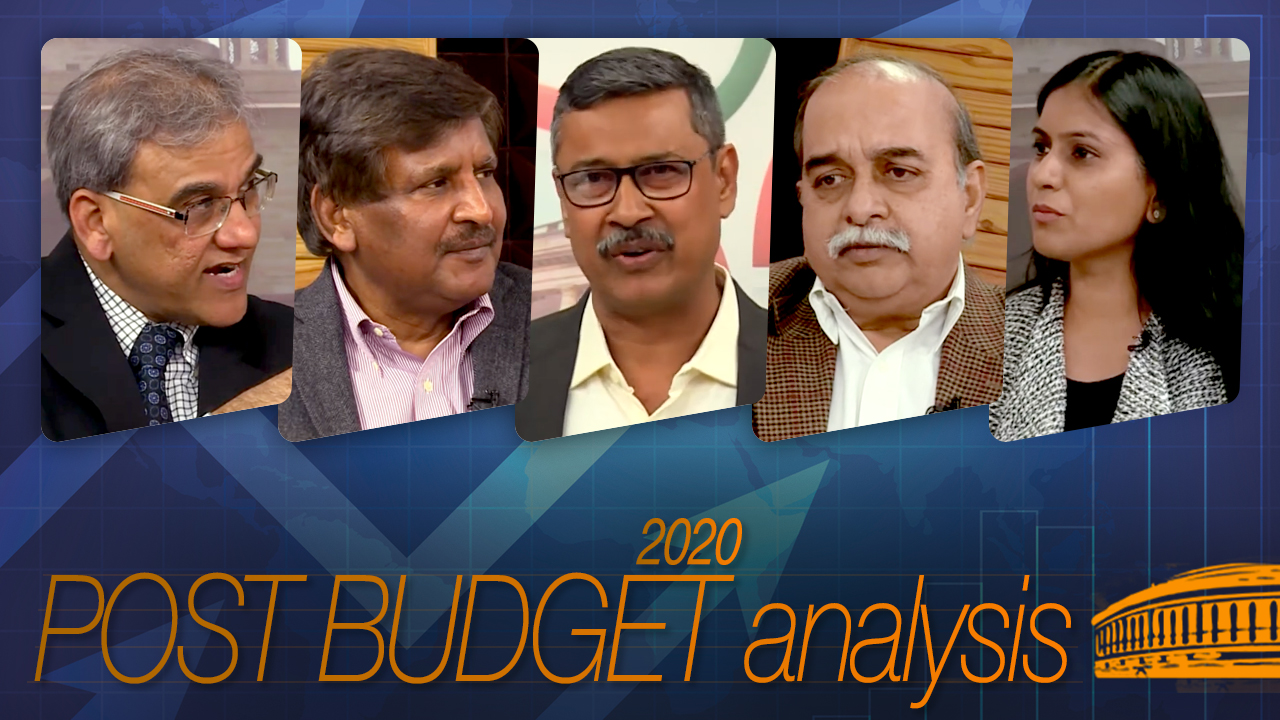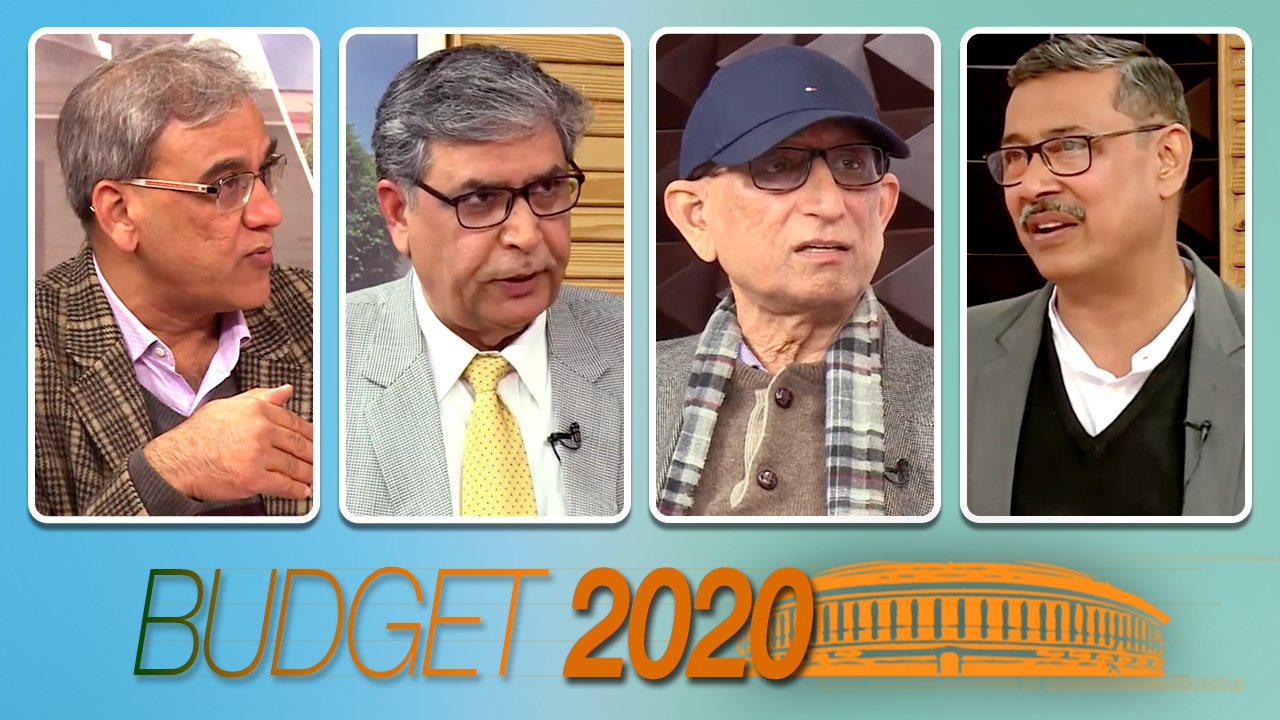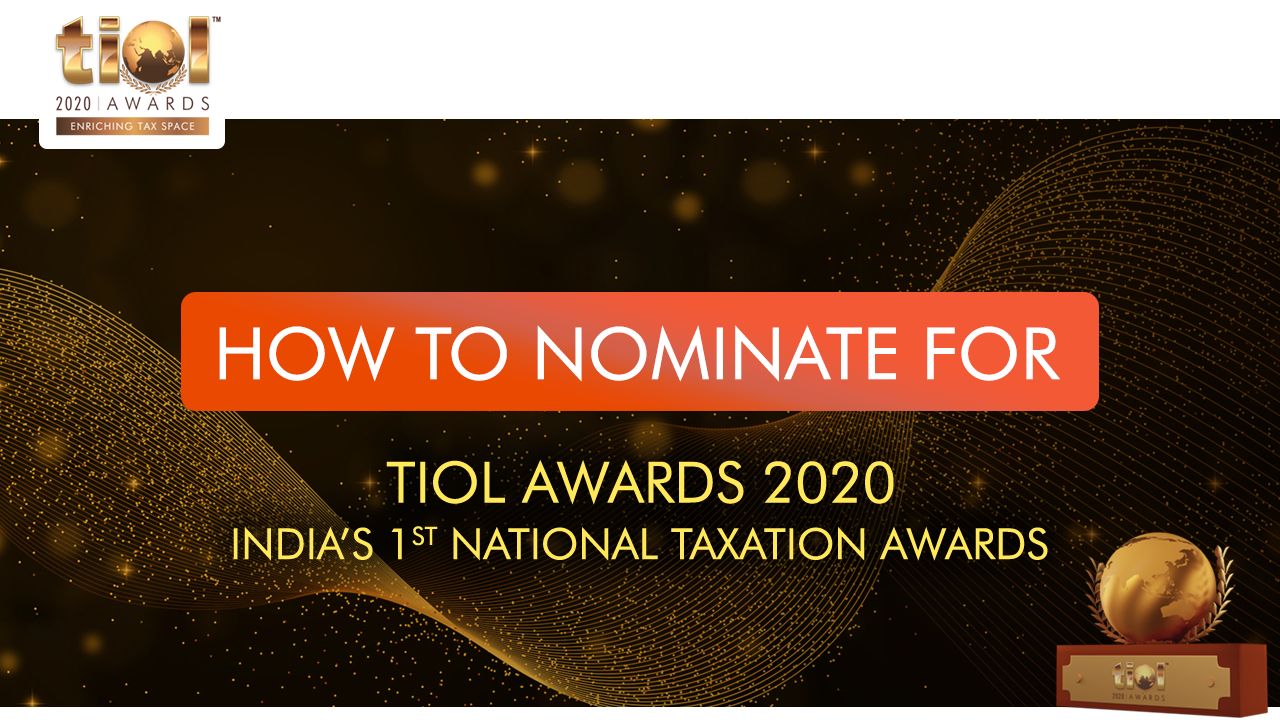|
SERVICE TAX
2020-TIOL-256-CESTAT-DEL
Ahlcon Parenterals India Ltd Vs CCGST, C & CE
ST - The assessee is company - A show cause notice was issued to to demand service tax & the assessee paid the same during the cource of litigation to file appeal before the Tribunal -The relevent order was challenged by the Revenue before the High court - The High court dissmissed the appeal filed by the revenue-The refund claim filed by the appellant on ground u/s 11B-The refund was confirmed upon adjudication-The revenue challanged the order of adjudication was upheld by the Commr.(A) - Hence the present appeal.
Held: The appellant had filed refund claim in time in terms of section 11B of the Act - The appellant had filed refund claim within one year from the high court order-the appeal filed by the revenue had been dissmissed-The appelant had become entittled to claim refund of the amount paid by them during the course of litigation - The Commr.(A) order to reject the refund claimed as time barred - Hence the order is set aside & the appeal is allowed: CESTAT
- Assessee's appeal allowed: DELHI CESTAT
2020-TIOL-255-CESTAT-HYD
Bharat Heavy Electricals Ltd Vs CCT
ST - The assessee is a public sector company engaged in manufacturing various products and which avails benefit of cenvat credit - Upon introduction of GST, the assessee migrated to the new regime from the erstwhile service tax and central excise regime - As per the new provisions, cenvat credit lying in balance in its accounts at the time of transiton could be taken as input service credit and utilised accordingly - As on June 2017, some amount of credit remained unutilised - Such credit pertained to EC, SHEC and KKC - The assessee filed application for refund of such credit along with refund of Excise duty u/r 173S of the CER 2002 - Such application was rejected by the original authority on grounds that there was no legal provision under which refund could have been sanctioned - Such findings in the O-i-O were sustained by the Commr.(A) - Hence the present appeal.
Held: The judgment of the Larger Bench of the Bombay High Court in Gauri Plasticulture Pvt Ltd is precisely on the point whether the assessee can get cash refund of cenvat credit which it is not able to utilize & such question was answered in the negative - The High Court of Madras in Sutherland Global Services Pvt Ltd touched upon a different issue - The latter decision did not deal with the issue of cash refund of unutilized cenvat credit, which is in dispute in the present case - Hence there is no legal provision under which the assessee's appeal can be entertained: CESTAT
- Assessee's appeal dismissed: HYDERABAD CESTAT
CENTRAL EXCISE
2020-TIOL-280-HC-MP-CX
CCGST & CE Vs Natwar Lal Sharda
CX- Issues are (i) Whether in the facts and circumstances of the matter, the CESTAT has rightly analyzed the effect of the order of the High Court and the Supreme Court of India wherein the earlier order of adjudication was affirmed(ii) Whether in the facts and circumstances of the matter, the CESTAT has rightly appreciated the effect of evidence and the degree of proof required to establish a case against the respondent(iii) That, other questions of law may be framed by this Court looking to the pleadings raised by the appellants and facts and evidence on record(iv) Whether in the facts and circumstances of the case, the CESTAT has committed a gross legal error in ignoring the earlier Final order No.A/257/2012-EX(BR) dated 6.3.2012 which has stated that, "We find that the evidence showing unaccounted receipt of scented tobacco as evidence by the records recovered from M/s.Sarita Roadways in maintainable" -and later on, High Court vide their Judgment dated 8.2.2017 in CEA No.24/2012 had also stated that 'there was sufficient evidence about the manufacture and removal of goods and the Department has rightly drawn inference about clandestine manufacture and removal and whether a res judicata operated between the parties
Held: While passing the impugned order, the CESTAT has observed that all the companies mentioned in the recovered Lorry Receipts are different entities, therefore, the respondents cannot be held liable for any Lorry Receipts, which is not related to it - para nos.9 to 13 of the impugned judgment are relevant - while deciding the dispute between the parties, CESTAT has not opined or held that the Lorry Receipts recovered during the search are not admissible, therefore, the argument advanced by the counsel for the appellant that the order of CESTAT is incorrect or illegal is not tenable -the CESTAT has clearly held in para no.9 of the impugned order that "It appears that all business entities mentioned in the Lorry Receipts are independent business entities as their assessment, registration etc. were separate - in the eyes of law, each firm/business entity is a separate business entity as its assessment was separate" - there is nothing on record to rebut or contradict this finding of the CESTAT - when all the business entities are independent business entities, then there is nothing wrong in holding that a business entity cannot be held responsible for any Lorry Receipts, which is not related to it - the dispute between the parties as well as order of the Tribunal is purely based upon appreciation of facts and keeping in view the nature of dispute, no question of law arises -therefore, the CESTAT has not committed any error - there is no question of law involved in the matter - the appeals preferred by the Revenue have no merits, therefore, the admission is declined and resultantly, the appeals stand dismissed and disposed of : HIGH COURT [para 16, 17, 18, 19]
- Appeals of Revenue dismissed: MADHYA PRADESHHIGH COURT
2020-TIOL-279-HC-MUM-CX
CCE & C Vs Encore Healthcare Pvt Ltd
CX- Issues are -(1) Whether the respondent assessee had contravened the provisions of rule 57CC of the Central Excise Rules, 1944 [Rules]? (2) Whether, the respondent assessee having availed the Modvat Credit under rule 57-A on common inputs but having failed to pay @ 8% on the exempted product nor having maintained the separate inventory for the inputs used for the manufacture and exempted product amounts to contravention of rule 57CC of the Rules? (3) Whether the respondent assessee is required to pay @8% of price of exempted goods in terms of rule 57CC?
Held - This Court holds that at this stage, it is not possible to consider the matter in detail as from the nature of order made by CESTAT, it can be said that necessary material is not considered by the CESTAT and there was non application of mind -in the result, the appeal is allowed - the judgment and order of CESTAT is hereby set aside - the matter is remanded back for fresh decision which needs to be given after considering the relevant material and CESTAT is expected to give reasoned order in respect of the material available against the assessee: High Court [para10, 11]
- Matter remanded: BOMBAY HIGH COURT
2020-TIOL-278-HC-MP-CX
Magnum Steels Ltd Vs UoI
CX - (1) Whether Rule 25(1)(b) of the Central Excise Rules, 2002 [Rules] can be read in isolation without reading rule 25(1)(d) of the Rules?(2) Whether the iron bars weighing into tons could it be judged only with the estimation without actually weighing the same? (3) Whether in the facts and circumstances of the case, defence of the appellant stood jeopardised for the non-supply of weighment sheets?(4) Whether while issuing the show cause notice it was not necessary for the respondent/Revenue to supply the weighment sheets and counting sheets, and could the Revenue deny the supply of those documents on the basis that they are the documents not relied upon by the Department, as mere estimation of weighment is not enough to burden the appellant to fasten with the penal liability?
Held: It is apparent from the judgment rendered by the Gujarat High Court in the case of Saurashtra Cement Ltd. - 2010-TIOL-889-HC-AHM-CX and Allahabad High Court in the case of Usha Martin Construction Steel Ltd. - 2011-TIOL-904-HC-ALL-CX that to attract the provisions of rule 25(1)(b) of the Rules, mensrea is not required to be proved and it has been held by the Supreme Court in the case of Zunjarrao Bhikaji Nagarkar - 2002-TIOL-130-SC-CX that the word "liable" used both in rule 173 Q of the Central Excise Rules, 1944 and section 11 AC of the CE Act make such unaccounted goods liable to confiscation as well as penalty -the interpretation of word 'liable' has been given by the Supreme Court that the interpretation of the provision is that not only offending goods liable to confiscation but shall be liable to penalty up to the amount specified in the rule -it has held that levy of penalty is not discretionary but the amount of penalty is discretionary -in the present case, since goods were not accounted for, therefore, they were liable to confiscation and payment of fine and penalty upon which such goods could have been redeemed as has been mentioned by the original authority in the SCN -when provisions of section 11 AC of CE Act are read with provisions of rule 25 of the Rules, it is apparent that in view of admitted unaccountable goods being found, a panchanama was prepared in presence of the authorized signatory who signed without protest, authorities were well within their jurisdiction to confiscate such unaccounted goods and they could have been redeemed only on payment of duty and penalty and to that extent the order of Appellate Tribunal does not suffer from any infirmity and as the issues which have been raised by appellant are the issues of facts and not substantial questions of law, therefore, appeal fails and is dismissed: HIGH COURT [para 10, 11]
- Appeal dismissed: MADHYA PRADESH HIGH COURT
2020-TIOL-254-CESTAT-MUM
Manikgarh Cement Vs CCE
CX - Application filed for alleged rectification in the final order dated 22.02.2018 - 2018-TIOL-1580-CESTAT-MUM - applicant submits that primary ground taken by them of limitation has been ignored by the Tribunal and without giving any findings thereon.
Held: There is no denial of the fact that the points raised concerning non-application of extended period of limitation have not been specifically dealt with and findings have not been placed on record on the same - Perusal of SCN would reveal that for contravention of provision of Rule 2 & 3 of CCR and Rule 4, 6, 8 & 11 of CER, 2002, the demand was raised and it was confirmed in the OIO and OIA on the ground that appellant had suppressed the fact that they were availing Cenvat Credit of service tax on such service which was not rendered by them - The order passed by this Tribunal also confirmed the same reasoning that appellant was not the recipient of service for which the Tribunal found no infirmity in the impugned order - This being to the findings of the Tribunal, allowing rectification of mistake application so as to bring debatable points of law and fact for re-appreciation and analysis would defeat the purpose of the provision contained in the CEA, 1944 for rectification of mistake and defeat the appeal procedure prescribed in the Statute too - Application, being devoid of merit, is rejected: CESTAT [para 4]
- Application rejected: MUMBAI CESTAT
2020-TIOL-253-CESTAT-MUM
MK Trading Company Vs CCE
CX - Cenvat Credit denied to the appellant on the ground that supplier of the Appellant had availed Cenvat Credit on fake invoices without actual movement/supply of goods - demand confirmed along with interest and penalty - appeal to CESTAT.
Held: Original supplier of appellant has been prosecuted for non-payment of duty and availment of Cenvat Credit which was subsequently passed on to the appellant by the supplier - This being the factual scenario, it is on the supplier of appellant on whom duty liability is to be determined since the credit has been passed on to the appellant by supplier after all payments had been made by the appellant - Further, in the event of such liability of duty being determined against the supplier of appellant i.e. M/s. Accelerate Synthetics Pvt. Ltd., imposition of same duty on the appellant would amount to double taxation, which no law of the land would approve it - Therefore, direction for reversal of Cenvat Credit by the appellant in the instant case and imposition of penalty etc. are not in conformity to the rules and procedure - appeal allowed: CESTAT [para 7, 9]
- Appeal allowed: MUMBAI CESTAT
CUSTOMS
2020-TIOL-281-HC-AP-CUS
LNS Impex Vs PR CC
Cus - Aggrieved by an order in original passed by the 1st respondent, directing the confiscation of a product imported by the petitioner and giving an option to the petitioner alternatively to redeem the goods for the limited purpose of re-export to the supplier, the importer has come up with the above writ petition - the main grounds on which the impugned order is assailed are (1) that a direction for re-export is beyond the purview of section 125(1) of the Customs Act, 1962 and (2) that so long as the imported goods do not fall under the category of prohibited goods, there cannot be a direction to re-export.
Held: The import of plant growth regulators is not prohibited absolutely -they may actually fall under the category of "restricted goods", and the restriction is with regard to registration -even goods which are prohibited for import will shed the character of being prohibited goods, if they are imported after complying with the conditions for such import -the Supreme Court in the case of Om Prakash Bhatia - 2003-TIOL-06-SC-CUS held that if the conditions are not fulfilled, the goods may be branded as prohibited goods -the decision in Om Prakash Bhatia was followed by the Supreme Court in the case of Brooks International - 2007-TIOL-103-SC-CUS the decision in Om Prakash Bhatia has been holding the field as on date-the requirement of registration becomes a restriction on the free import, as held in Brooks International -under section 3 of the Foreign Trade (Development and Regulation) Act, 1992 [Foreign Trade Act] the Central Government is entitled to pass orders making provisions for prohibiting, restricting or otherwise regulating the import or export of goods - section 3(3) of the Foreign Trade Act declares that once an order is passed under section 3(2) prohibiting, restricting or otherwise regulating the import or export of goods, the goods would be deemed to be prohibited under section 11 of the Customs Act, 1962 -under section 11(1) of the Foreign Trade Act, the import or export of goods except in accordance with the provisions of the Act and the Foreign Trade Policy, is prohibited - if goods are imported in contravention, they are liable for confiscation under section 11(8) of the Act - but, the confiscated goods can be released under section 11(9) of the Foreign Trade Act, upon payment of redemption charges - this section 11(9) of the Foreign Trade Act is similar to section 125(1) of the Customs Act, 1962 -in Brooks International, the Supreme Court held that "restriction" is one type of prohibition - if restriction is one type of prohibition, then the goods become prohibited goods - therefore, this Court cannot find fault with the respondents in treating the requirement of registration as a restriction on the free import and consequently treating the goods, imported without registration, as prohibited goods -therefore, the Writ Petition is liable to be dismissed and accordingly it is dismissed: High Court [para17, 20, 21, 22, 24, 25, 26, 27, 28]
- Petition dismissed: ANDHRA PRADESH HIGH COURT
2020-TIOL-276-HC-MUM-CUS
Prabhulal Bhuralal Thakkar Vs UoI
Cus - The petitioner sought that directions be issued to the Revenue to refund an amount stated to be deposited by the former - An SCN had been served to the petitioner and some other persons in respect of duty sought to be evaded - Thereafter, O-i-O was passed, confirming duty demand - Penalty u/s 112(a) & 112(b) was also imposed on several persons, including the petitioner for his act of omission and commission - The petitioner filed an appeal against such order, which is pending disposal - The petitioner claimed that the Commr. erroneously forfeited the deposit made by the former, observing it to have been made by another person who was the alleged mastermind in the fraud.
Held: Considering the O-i-O, it is seen that the Commr. found that the petitioner and several other persons aided by the mastermind, aided in the evasion of duty and was fully aware of the fraud - The Commr. observed that the deposit was not made by the petitioner but by another person who is the mastermind - If it is the petitioner's case that the amount was not deposited by this person, the same would be a case of wrong forfeiture of deposit - However, nothing shows as to why such ground cannot be raised in the appeal pending disposal - As such remedy remains unutilised, this court need not delve into the same: HC
- Writ petition disposed of: BOMBAY HIGH COURT
CC Vs Fugro Survey Middle East Ltd
Cus - The Revenue filed the present appeal to assail findings of the Tribunal holding that survey equipment carried on board the vessel separately is import cargo - The Tribunal had also held that vessel in question is a survey vessel and that Survey equipment it carried on board, installed or otherwise but used in survey and parts thereof would be entitled to be covered under the term ship-stores when lying loose and be part of ships fitments when affixed - The Tribunal also quashed the findings of the adjudicating authority to confiscate the equipment - The Tribunal also held that the provisions of Section 30 had not been contravened by not declaring the survey equipment as cargo - The Tribunal further held that the ownership of survey equipment is not relevant to decide the eligibility of the equipment to be ship stores or filament on board therefore a part of the ship.
Held: The appeal against such order was filed before the Apex Court by the Revenue - The appeal was admitted by the Apex Court and upon hearing, the Revenue's counsel pointed out that appeal had to be filed before the High Court in view of Section 130 of the Customs Act - Hence the appeal before the Apex Court was dismissed with liberty to approach the High Court - Hence registry is directed to communicate copy of this order to the Tribunal: HC
- Notice issued: BOMBAY HIGH COURT
|
|







